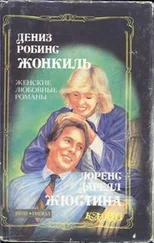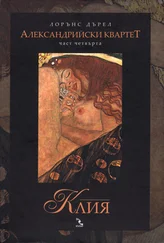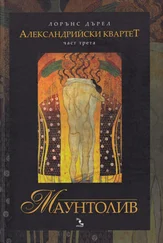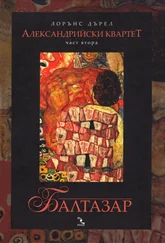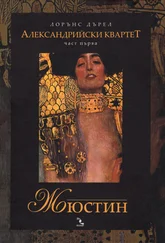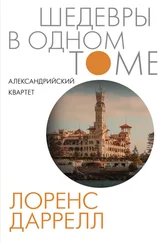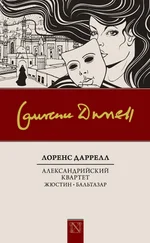Лоренс Даррелл - Prospero's Cell
Здесь есть возможность читать онлайн «Лоренс Даррелл - Prospero's Cell» весь текст электронной книги совершенно бесплатно (целиком полную версию без сокращений). В некоторых случаях можно слушать аудио, скачать через торрент в формате fb2 и присутствует краткое содержание. Жанр: Проза, на английском языке. Описание произведения, (предисловие) а так же отзывы посетителей доступны на портале библиотеки ЛибКат.
- Название:Prospero's Cell
- Автор:
- Жанр:
- Год:неизвестен
- ISBN:нет данных
- Рейтинг книги:4 / 5. Голосов: 2
-
Избранное:Добавить в избранное
- Отзывы:
-
Ваша оценка:
- 80
- 1
- 2
- 3
- 4
- 5
Prospero's Cell: краткое содержание, описание и аннотация
Предлагаем к чтению аннотацию, описание, краткое содержание или предисловие (зависит от того, что написал сам автор книги «Prospero's Cell»). Если вы не нашли необходимую информацию о книге — напишите в комментариях, мы постараемся отыскать её.
Prospero's Cell — читать онлайн бесплатно полную книгу (весь текст) целиком
Ниже представлен текст книги, разбитый по страницам. Система сохранения места последней прочитанной страницы, позволяет с удобством читать онлайн бесплатно книгу «Prospero's Cell», без необходимости каждый раз заново искать на чём Вы остановились. Поставьте закладку, и сможете в любой момент перейти на страницу, на которой закончили чтение.
Интервал:
Закладка:
'An old man's love,' says the Count. 'Look at her. There you have desire which is quite still, retained inside the mind as form and volume — like the grapes for lunch which were still warm and a little drowsy from the sun. It is the speechless potence of the old man, the most terrible kind of desire in stillness which this Mediterranean sculptor has impressed in the rock. Was he happy or unhappy, moral or amoral? He was outside the trap of the opposites. It was a mindless act of coition with the stone that made him describe her. Critics would be interested to know if it was his wife or his eldest daughter. Their speculations would lie right outside the realm in which this sixth-century Pomona stands. It is not desire as we know it — but an act of sex completed by looking at her. The weight of her. Feel how cold the stone arms are.'
The moon is up now among the trees, and the first screech of the owl rings out across the meadow.
'Ah! but I see they have lighted the candles and laid the table,' says the Count, suddenly conscious of the dew as he moves his toes in his battered felt slippers. 'And is it our function simply to stand about here making bad literature? Doctor, we are having brain cutlets in your honour this evening; and, my dear Zarian, a bottle of Mantinea red wine for you.'
Seated at the great table by the sedate light of his own candles, the Count turns to me and says: 'It is the pleasantest form of affection to be able to tease one's friends. You perhaps do not know the history of the Society of Ionian Studies and the brain cutlets?' At this Theodore shows the faintest signs of impatience, and remarking it, the Count pats him laughingly on the arm. 'The Doctor's well-known passion for brain cutlets is something of which you will have undoubtedly heard. Well, some years ago, he was asked to become President of a small informal society of local savants, who were bent on the pursuit of Ionian studies. They were a sombre and bearded collection — for the most part doctors and lawyers of the island: these being the two classes which have the least work to do. At this time our friend was pursuing some studies upon forms of idiocy at the local asylum; and he was particularly interested in the mental condition of an inmate called Giovannides, whose brain he had been coveting off and on for a number of years. In those days he used to speak about Giovannides' brain with ill-concealed cupidity, and explain what a splendid time he would have when the patient died. You see, he had been promised the brain for dissection. Now it so happened that this long-awaited event took place upon the very day when the inaugural lunch of the society was due to take place at the Doctor's house; Theodore was in a state of great excitement. He found himself unable to be patient, and spent the whole morning extracting the brain from its brain-case, remembering all the time that he must get home and prepare his speech for the Society. By midday he had succeeded in removing the brain, and, having wrapped it carefully in greaseproof paper, he had managed to reach home with it held in his arms like a precious treasure. On entering the house he realized that the day was exceptionally warm, so he entered the kitchen, where he popped the lunatic's brain in the ice-box, and retired to his study to prepare his speech. All went well. The guests arrived and were seated at table. The speech was delivered and met with restrained applause. And a steaming dish of the Doctor's favourite brain-cutlets appeared, which was greeted with delighted exclamations. As the guests were helping themselves the telephone in the corner of the room rang. It was Theodore's wife, who had rung up to apologize for having been unable to provide him with his favourite dish for lunch. There was, she said, no brain to be bought anywhere in town. An involuntary cry burst from Theodore's lips. To do him justice, it was not really of his guests that he was thinking so much as of his brain. With a muffled cry of “Giovannides' brain” he sprang to the kitchen and opened the ice-box. The brain had gone. Speechless with anxiety the good doctor returned to the banqueting-room and found that his guests were all looking either uneasy or downright ill. Where a lesser man would have carried it off without telling them anything definite, and where a greater would have wrung his hands for science, Theodore simply stood, trembling from head to foot and pointing at the dish of excellent braincutlets and repeating: “I get a brain and this is what you do. I get a brain and this is what you do.” By this time the truth had dawned upon the Ionian Society; their dissolution was so sudden as to be amazing. The maid threw her apron over her head and burst into sobs. The inaugural lunch was a failure. But that was not the unkindest thing of all. The brain of the lunatic was at this moment safely upon Theodore's desk, in the study; the cook, who was devoted to Theodore, had spent the whole morning searching for brain, and had found some in the nick of time. The cutlets served to the Society were perfectly genuine brain cutlets. But do you think he has ever managed to persuade anyone of the truth of this? No. The Society is now referred to as the Brainfever Society, and its members are all supposed to be suffering from aberrations brought on by this meal.'
This anecdote, which we have heard perhaps a dozen times, always sinks Theodore into a profound gloom; for Zarian laughs so immoderately that he spills his wine, and has a fit of coughing until he almost rolls under the table. This is the Count's cue, and turning to him on the backwash of his laughter he says: 'But perhaps Zarian will permit me to tell you the story of his explorations into Greek wines.' At this, it is Zarian's turn to look uncomfortable, while Theodore's face is lit by a shy smile. 'You will have noticed,' says the Count, 'that Zarian champions everything Greek except the wines. It is true they are not very good, but you would expect a few romantic notes to be blown from time to time on his trumpet. No, I might go so far as to say that he is definitely against Greek wine, and I often wonder whether the little incident of the Mantinea 1936 had anything to do with it. May I repeat the story in my own way?' he asks Zarian with elaborate courtesy. The latter runs his fingers through his mane of silver hair, braces his shoulders as one about to bear a burden, and humbly nods. It is charming to watch him ill-at-ease, picking at the tablecloth, searching for non-existent matches in the pockets of his waistcoat, or shaking his finger in his ear with an expression of simulated pain. The Count sips his wine twice, fills my glass, and continues.
'Late one night last year I received a telephone call. The voice was so full of suppressed excitement that I had difficulty in recognizing it as that of Zarian. He had, he said, something of the utmost importance to tell me. The revelation was too secret to be mentioned on the phone, but I gathered that something very frightful or very wonderful had happened to him. At that time I was in the towri house, so I agreed to walk across the Esplanade and see my friend. To be frank, I thought he had simply written a poem. As we all know, when Zarian writes one of his rare poems, he telephones to all his friends and asks them to come round and have it read to them. It was not a poem or an accident. When I climbed those tottering stairs to the top floor of the St. George Hotel I found my friend sitting in a room at a table, staring with considerable rigidity at an open bottle of wine. A single candle guttered beside it on the table Catching sight of me, he beckoned me speechlessly into the room and into a chair opposite. For a moment he said nothing but continued to stare at the bottle of wine. Then at last he spoke in accents positively strangled by excitement. “My dear Count,” he said, “I have at last discovered a Greek wine comparable to anything grown in France.” He tip. toed to a cupboard and brought me a glass which he filled very gingerly, holding his breath as he did so. I sipped it. It was a very fine Beaune, ringing on the palate like a note of music. The bottle said MANTINEA 1936, and I knew that Mantinea was an ordinary table wine. I congratulated him and drank some more. Zarian was by this time walking up and down in a state of considerable excitement. “A wine for the Gods,” he kept repeating. I noticed that he was in his socks. His feet, he said, hurt him. He had been walking round the town since four in the afternoon buying up all the wine of this name and date he could find. My impulse there and then was to warn him against undue optimism, but his pleasure was so warming a sight that I let him ramble on. Finally he lead the way into his wife's bedroom, holding the candle high, in order to let me see the seventy or eighty bottles of the wine lying snugly upon the bed. I remember that he held his finger over his lips and spoke in whispers, for all the world as if we were in danger of waking the bottles up. It took us an hour to finish the bottle with our conversation growing more and more exalted. Zarian felt that the last link to bind him to Corcyra had been forged; always fussy about wine, he had been unable to get used to the heavy sweet products of Greece. When we had disposed of the first bottle his magnanimity lead him to tiptoe into the bedroom and come back with another. He opened it with a flourish, poured some out, and sipped. An expression of disgust came over his face. He held the wine for a moment only in his mouth before bounding to the window and spitting it out. It was obviously a faulty bottle. With a dawning look of alarm on his face he retired and fetched two more bottles. They were both full of superior vinegar. He opened a dozen. They were all the same. I left him that evening surrounded by opened bottles of Mantinea, which he was pouring away down the kitchen sink. The glorious Beaune was never repeated. And now when I offer him a glass of Mantinea — which is after all not a very bad wine as wines go — you observe the face he makes.'
Читать дальшеИнтервал:
Закладка:
Похожие книги на «Prospero's Cell»
Представляем Вашему вниманию похожие книги на «Prospero's Cell» списком для выбора. Мы отобрали схожую по названию и смыслу литературу в надежде предоставить читателям больше вариантов отыскать новые, интересные, ещё непрочитанные произведения.
Обсуждение, отзывы о книге «Prospero's Cell» и просто собственные мнения читателей. Оставьте ваши комментарии, напишите, что Вы думаете о произведении, его смысле или главных героях. Укажите что конкретно понравилось, а что нет, и почему Вы так считаете.

